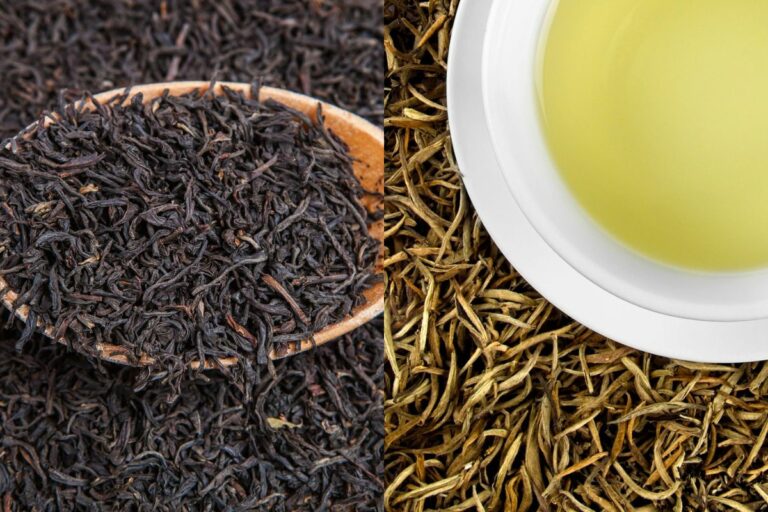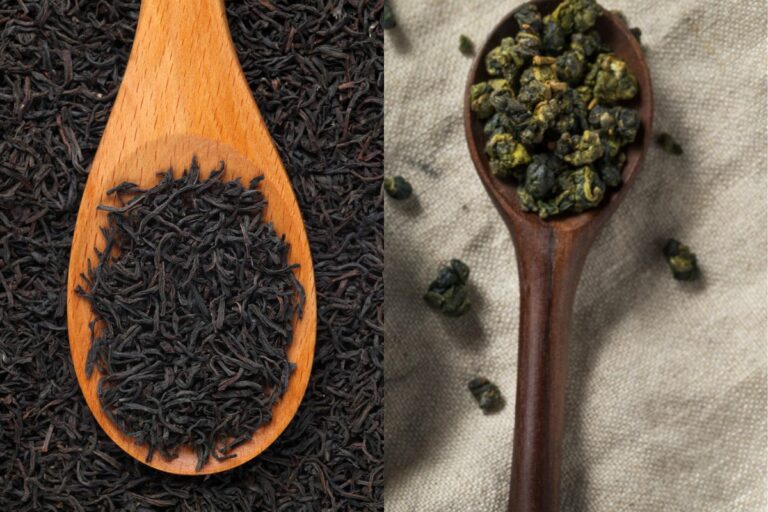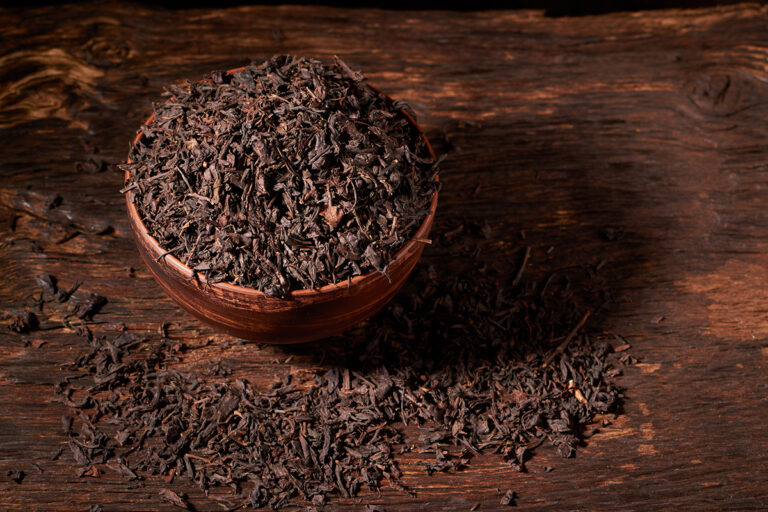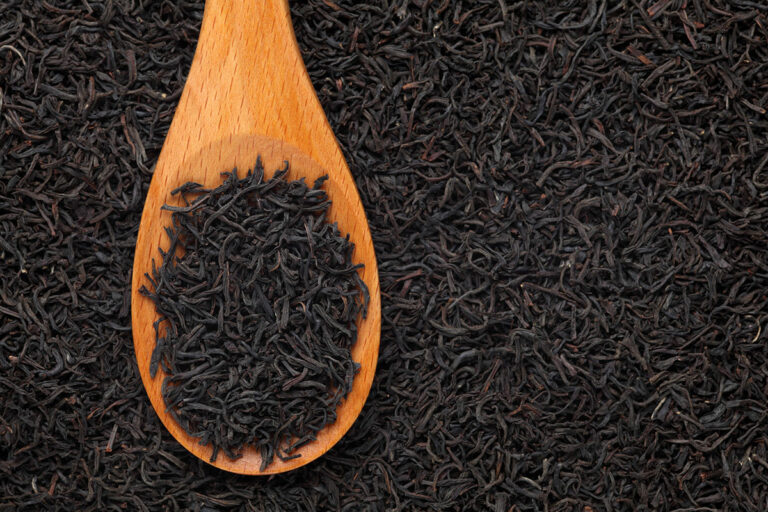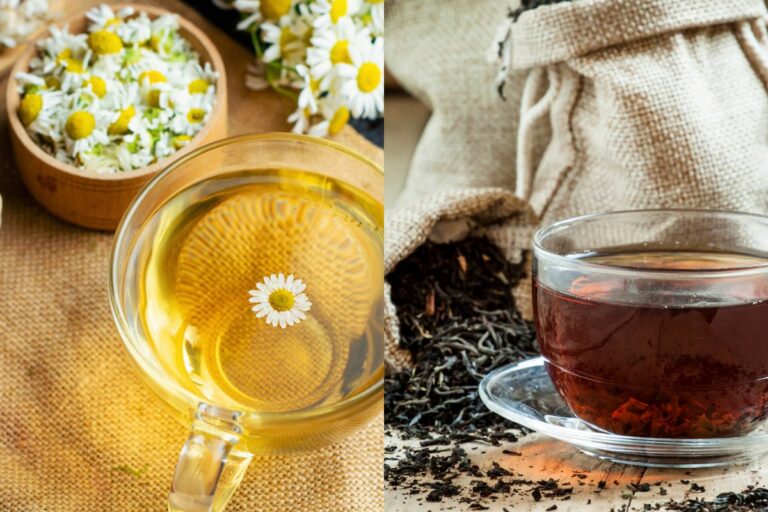What Does Black Tea Taste Like?
Black tea, one of the most popular and widely consumed beverages around the world, offers a unique and complex flavor profile that has captured the hearts and taste buds of millions.
This article will delve into the world of black tea, exploring its taste, the factors that contribute to its flavor, and how to enhance your black tea experience.

What Is Black Tea?
Black tea originates from the Camellia sinensis plant, the same plant that produces green and white teas. However, the distinguishing factor between these teas lies in the oxidation process. Black tea undergoes a longer oxidation process, which results in a darker color, stronger flavor, and increased caffeine content compared to its green and white counterparts.
What Does Black Tea Taste Like?
Black tea has a robust, full-bodied flavor that can be described as a combination of malty, earthy, fruity, and sometimes even floral notes. Its taste can vary from being bold and astringent to smooth and sweet, depending on the type, origin, and processing method.
Here are some common flavor profiles associated with black tea:
- Malty: Often described as having a rich, grain-like taste, similar to the flavor of malted barley.
- Earthy: This can be characterized by a deep, grounded taste that is reminiscent of soil or damp leaves.
- Fruity: Some black teas possess fruity undertones that range from subtle to prominent, such as citrus, berries, or stone fruits.
- Floral: Floral notes in black tea can be reminiscent of rose, jasmine, or orchid.
- Astringent: A key feature of black tea is its astringency, which refers to the drying sensation felt in the mouth due to the presence of tannins.
Factors Influencing Black Tea Taste
Variety
There are countless black tea varieties, each with its own unique flavor profile. Some popular varieties include:
- Assam: Originating from the Indian state of Assam, this tea is known for its strong, malty flavor and bright, reddish color.
- Darjeeling: Hailing from the Darjeeling region of India, this tea offers a delicate, floral aroma with fruity and muscatel notes.
- Ceylon: Grown in Sri Lanka, Ceylon tea is often characterized by its bold, brisk flavor with hints of citrus.
- Keemun: A Chinese black tea, Keemun is famous for its wine-like, fruity taste with a slightly smoky undertone.
Terroir
Terroir refers to the environmental factors, such as climate, soil, and altitude, that influence the taste of the tea. High-altitude tea gardens often produce tea with more delicate and nuanced flavors, while low-altitude tea gardens yield bolder, more robust teas.
Processing
Black tea processing involves several steps, including withering, rolling, oxidation, and drying. Each step can affect the final flavor of the tea:
- Withering: This process allows the tea leaves to lose moisture and become more pliable. The degree of withering can impact the tea’s overall taste and aroma.
- Rolling: Rolling helps break down the cell walls of the leaves, releasing essential oils and enzymes that contribute to flavor development. The rolling method and intensity can influence the final taste of the tea.
- Oxidation: The most crucial step in black tea processing, oxidation exposes the enzymes in the leaves to oxygen, turning them darker and developing the tea’s flavor, aroma, and color. The duration and degree of oxidation significantly affect the tea’s taste.
- Drying: Finally, drying the leaves stops the oxidation process and locks in the flavor. The drying method and temperature can also impact the final taste of the tea.
How to Brew the Perfect Cup of Black Tea
To enjoy the best flavors from your black tea, follow these simple brewing guidelines:
- Water quality: Use fresh, filtered water to ensure a pure and untainted tea taste.
- Water temperature: Heat the water to around 200-212°F (93-100°C). A rolling boil is ideal for black tea.
- Tea quantity: Use approximately 1 teaspoon of loose-leaf tea per 8 ounces of water.
- Steeping time: Steep your black tea for 3-5 minutes, depending on your taste preference. Longer steeping times will result in a stronger, more astringent brew.
- Strain: Remove the tea leaves by using a tea infuser or strainer to avoid over-steeping, which can cause bitterness.
Customizing Your Black Tea Experience
One of the reasons black tea is so popular is its versatility. You can easily customize your black tea experience by adding sweeteners, milk, or spices to suit your taste. Here are some suggestions:
- Sweeteners: Add a touch of honey, sugar, or agave nectar to bring out the natural sweetness of the tea. Adjust the amount according to your preference.
- Milk: A splash of milk can help balance the astringency of black tea and create a smoother, creamier texture. Dairy milk, almond milk, and oat milk are popular choices.
- Spices: Experiment with adding spices to your black tea for a unique flavor twist. Common additions include cinnamon, cloves, cardamom, and ginger, which can create a warming, aromatic brew reminiscent of chai.
Best Black Teas for Your Next Batch
After exhaustive taste-testing of black teas, ranging from single-ingredient versions to blends, in both loose-leaf and tea bag formats, across a variety of price points, we have determined the best-tasting black teas.
Final Thoughts
Black tea offers a diverse range of flavors, making it a versatile and enjoyable beverage. From its bold, earthy tones to its fruity and floral nuances, the taste of black tea is a delightful journey for your taste buds.
By understanding the factors that influence its taste, brewing the perfect cup, and customizing it to your preference, you can truly savor and appreciate the rich and complex world of black tea.
FAQ
Is Black Tea Sweet or Bitter?
Black tea can have a range of flavors, from sweet and fruity to bitter and astringent. The taste depends on the variety, terroir, and processing methods. Oversteeping black tea or using water that’s too hot can result in a bitter taste. To enjoy the natural sweetness of black tea, pay attention to brewing guidelines, and consider adding a sweetener, such as honey or sugar, to enhance its flavor.
What Tastes Similar to Black Tea?
Dark oolong teas, such as Wuyi rock tea or Tie Guan Yin, can have a taste profile similar to black tea due to their partial oxidation process. These teas can offer a balance between the floral, fruity notes of lighter oolong teas and the bold, earthy flavors of black tea. Additionally, some dark, aged pu-erh teas can resemble black tea in taste, with their deep, earthy, and sometimes sweet characteristics.
Here’s a comparison of black tea vs. oolong tea if you’re interested.
Is Black Tea More Gentle Than Coffee?
In general, black tea has a lower caffeine content than coffee, making it a gentler option for those who are sensitive to caffeine or looking for a milder alternative. A typical 8-ounce cup of black tea contains around 40-70 milligrams of caffeine, while the same amount of coffee can have 95-200 milligrams. Moreover, black tea contains an amino acid called L-theanine, which can promote relaxation and help counteract the jittery effects of caffeine.
Is Earl Grey Tea Considered a Black Tea?
Yes, Earl Grey tea is a type of flavored black tea. It is made by infusing black tea leaves, typically from Assam, Ceylon, or Darjeeling, with oil extracted from the rind of bergamot oranges. This infusion creates a distinct citrus aroma and flavor that defines Earl Grey tea. The black tea base provides a robust, full-bodied taste, while the bergamot oil adds a fragrant, slightly sweet character.

